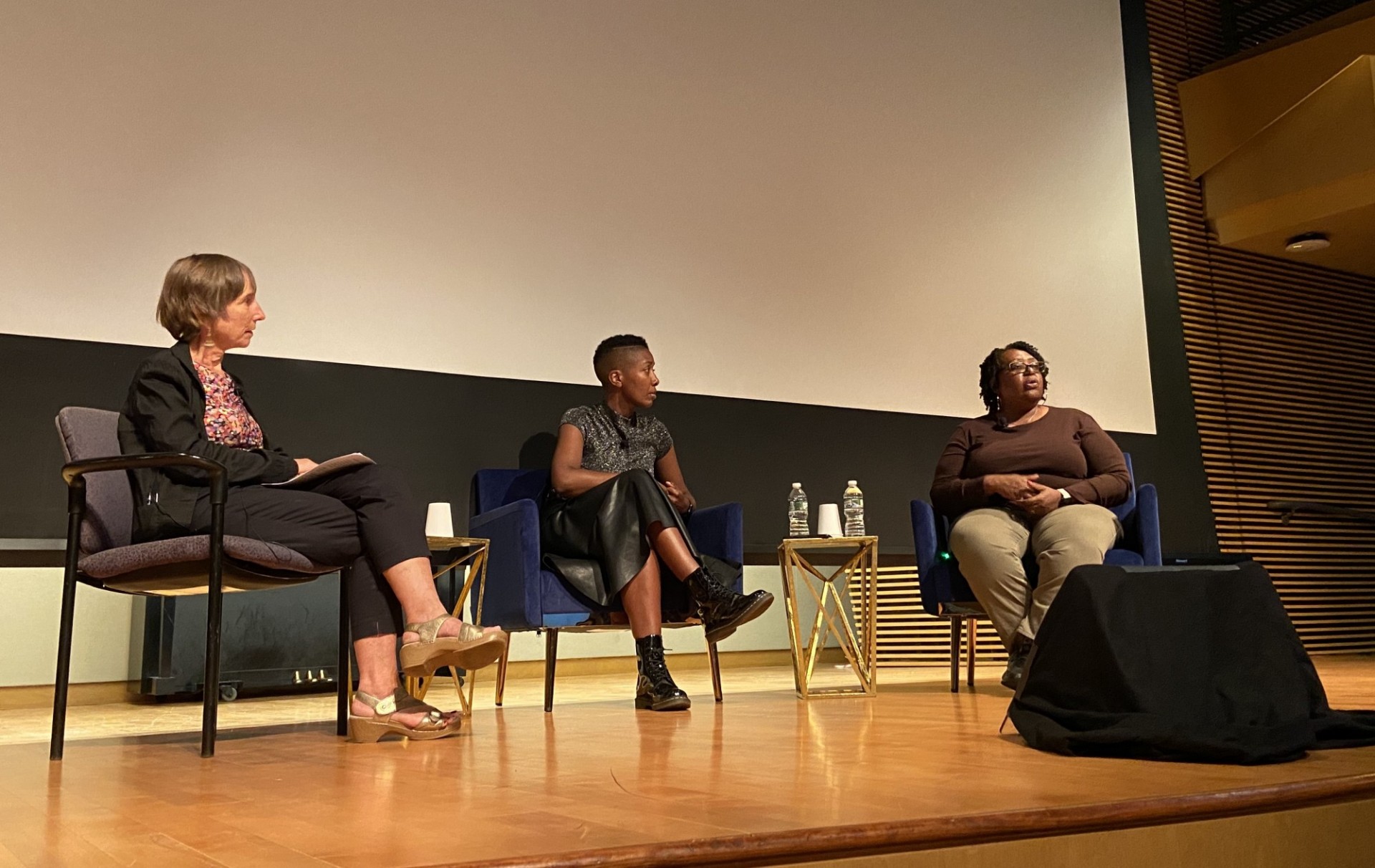Filmmaker and activist discuss the politics and perils of international adoption and family separation

The circle is now complete. In 2018, filmmaker Amandine Gay presented in a master class at the Columbia Maison Française what was then her work in progress: an archival film about transnational adoption. On September 21, 2023, five years later, she came back to present her finished work in the U.S. Premiere of A Story of One’s Own. Through the life story of five international adoptees, the documentary gives people an opportunity to hear about adoption from the adoptees’ point of view. This is a timely topic. A recent New York Times article exposed the high price of international adoption paid by South Korean adoptees as they confront their painful past and uncover truths about the adoption industry.
Joyce McMillan, founder of Just Making A Change for Families, an organization fighting against racial disparities and family separation, joined Amandine Gay to discuss adoption and the New York foster system after the screening of the film. Both view economic and racial inequalities as fueling international adoption and the foster care system in the U.S.
“Who has access to who’s children?” asked Amandine Gay to the audience. “People are never adopted from Switzerland to Ethiopia.”
In New York, Joyce McMillan said that the Child Protective Services (CPS) caseworkers frame poverty as neglect, which separates mainly Black, Latino, and lower-income families. Among the cases she follows, a headmaster in New York called the CPS after an 11-year-old girl missed three days of school because of anxiety. Following the Child Abuse Prevention and Treatment Act of 1974, suspicion is enough to alert CPS. According to a report led by Human Rights Watch about family separation in the U.S., the malleable state definitions of abuse and neglect make determinations susceptible to bias based on “race, class or other factors.” Black children are almost twice as likely to be the subject of investigations as white children in the U.S.
“Most people who are separated from their families long to be with their families,” Joyce McMillan said during the discussion. “But it’s not just the longing, it’s the culture, the medical history, it’s the language and so many more things that are missing.”
Throughout the film “A Story of One’s Own”, we witness what the interviewees have been through, their search for roots, and the construction of their identities despite all the blanks in their family history.
Anne-Charlotte, Joohee, Céline, Niyongira, and Mathieu all grew up in French families. They were originally from Australia, South Korea, Sri Lanka, Rwanda and Brazil. They let us enter their family albums while digging out their childhood memories in poignant interviews that provide the voice-over for a visual collage of photographs, family movies, drawings, letters, and other personal archives drawn from their past. One learned that she was Australian around her 20s, and some are still looking for their biological parents. One was adopted when she was a baby, and another left an orphanage in Rwanda when he was already a child.
“People often think about adoption as a single moment,” Amandine Gay said. “But when you’re an adoptee, it’s something that keeps happening all through your life.”
Amandine Gay is an adoptee herself. She grew up with white parents living in a small village near Lyon, where she was one of only two Black children – the other was her adopted brother. Because of a closed record adoption, she still has not obtained access to information about her birth parents or her medical background.
A 2013 study published in the Official Journal of The American Academy of Pediatrics concluded that the odds of suicide attempt were four times greater in adoptees compared to non-adoptees. If international adoption has been regulated by the Hague Convention in 1993 and is on the decrease, family separation in the U.S. stays frequent. Each year 200,000 children enter the foster system.
The documentary A Story of One’s Own showed adoptees eager to know more about their past and their culture of origin, refusing to be perceived as empty shells arriving in their adoptive family. Some adoptees are returning to their birth country to hold accountable the government and adoption agencies. Last year, South Korea opened its first official investigation into the adoption industry. Across Generations Film Festival’s next screening, Colette and Justin, will continue exploring family heritage through archival work about the history of the Congo under colonial rule and after gaining independence.